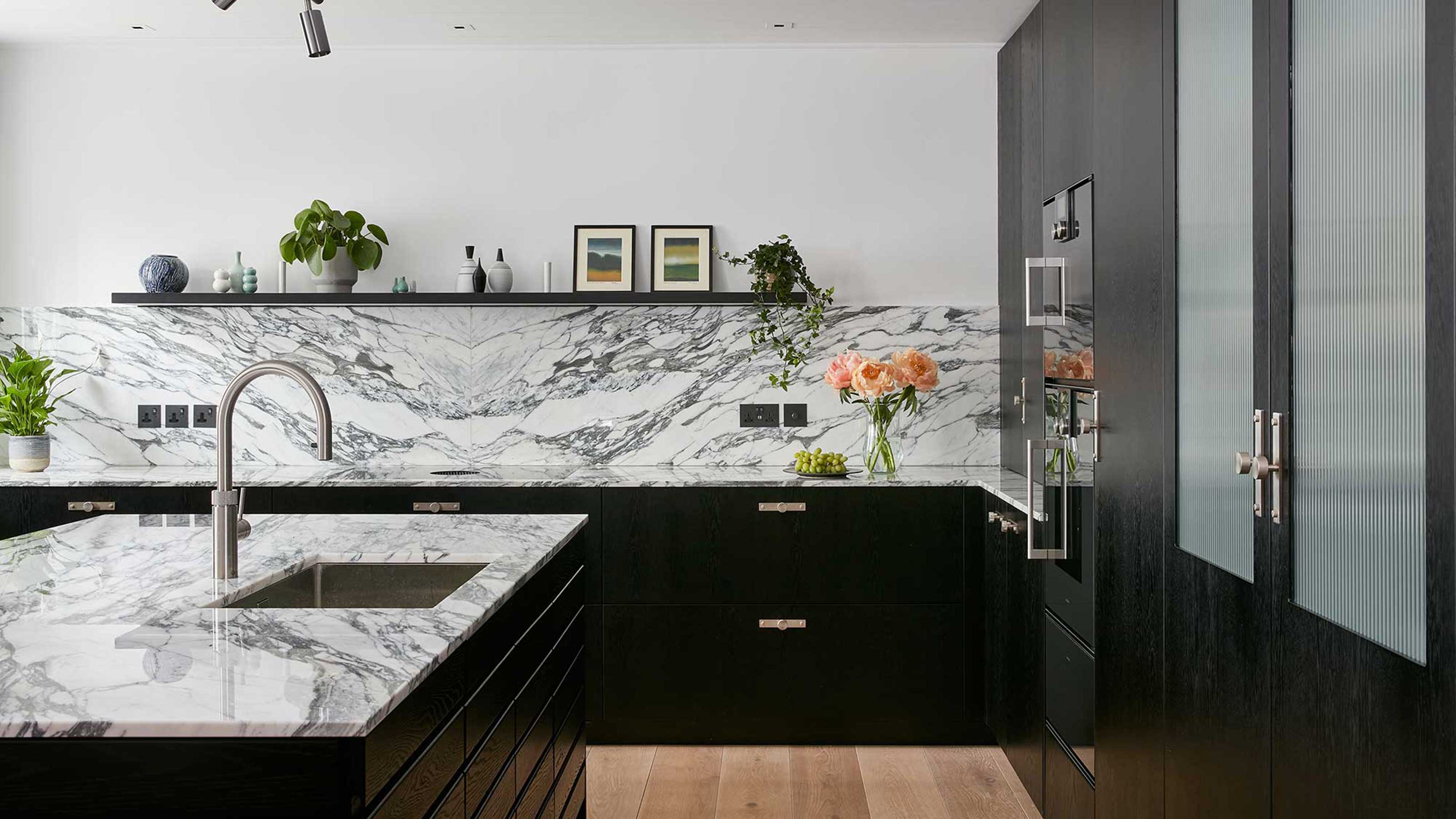
Your countertops are probably one of the biggest decisions you'll make in your kitchen renovation, but as much as we wish it didn't, the question 'how much do countertops cost?' is going to have an effect on what you end up choosing.
In breaking down how much a new kitchen costs, you have to take into account the different elements, including the countertops, so it pays to get a clear understanding of how your choices will affect your budget.
Here, we take a look at the various countertop materials available and how much they are likely to cost, plus we've included some expert advice on the hidden costs to be aware of.
How Much Do Kitchen Countertops Cost?
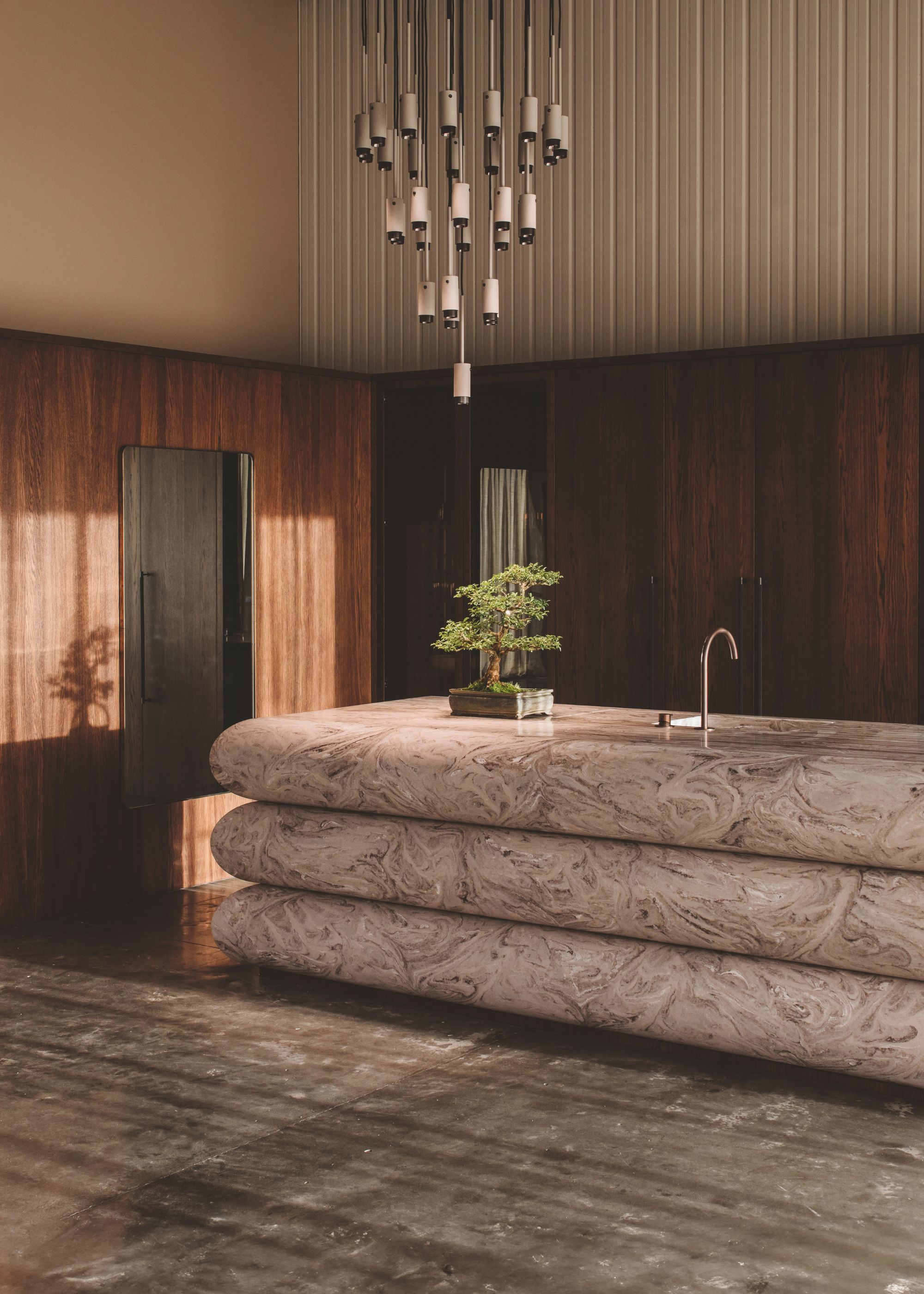
There is no simple answer to this — as with all things, the price you pay for your kitchen countertops will depend on a range of factors.
The kitchen countertop materials you opt for, the size of the countertop you'll need, the supplier you go with and finer details, such as the number of cut-outs you require for the sink and so on, will all have a part to play in the eventual cost.
William Durrant, owner of Herringbone House, has some advice on the prices he sees when working on a kitchen project which really show how much costs can vary.
"Worktops are normally between £3,000-£15,000 in one of our projects, depending on size and material," he says.
"In 2025, the cost of kitchen countertops varies widely depending on material, finish, thickness, and fabrication complexity," adds Antonio Bambino, designer at Sola Kitchens. "On average, you're looking at anywhere from £150 to over £1,000 per meter, with a few standout materials sitting at the higher end of that scale."
What Is the Most Expensive Kitchen Countertop?
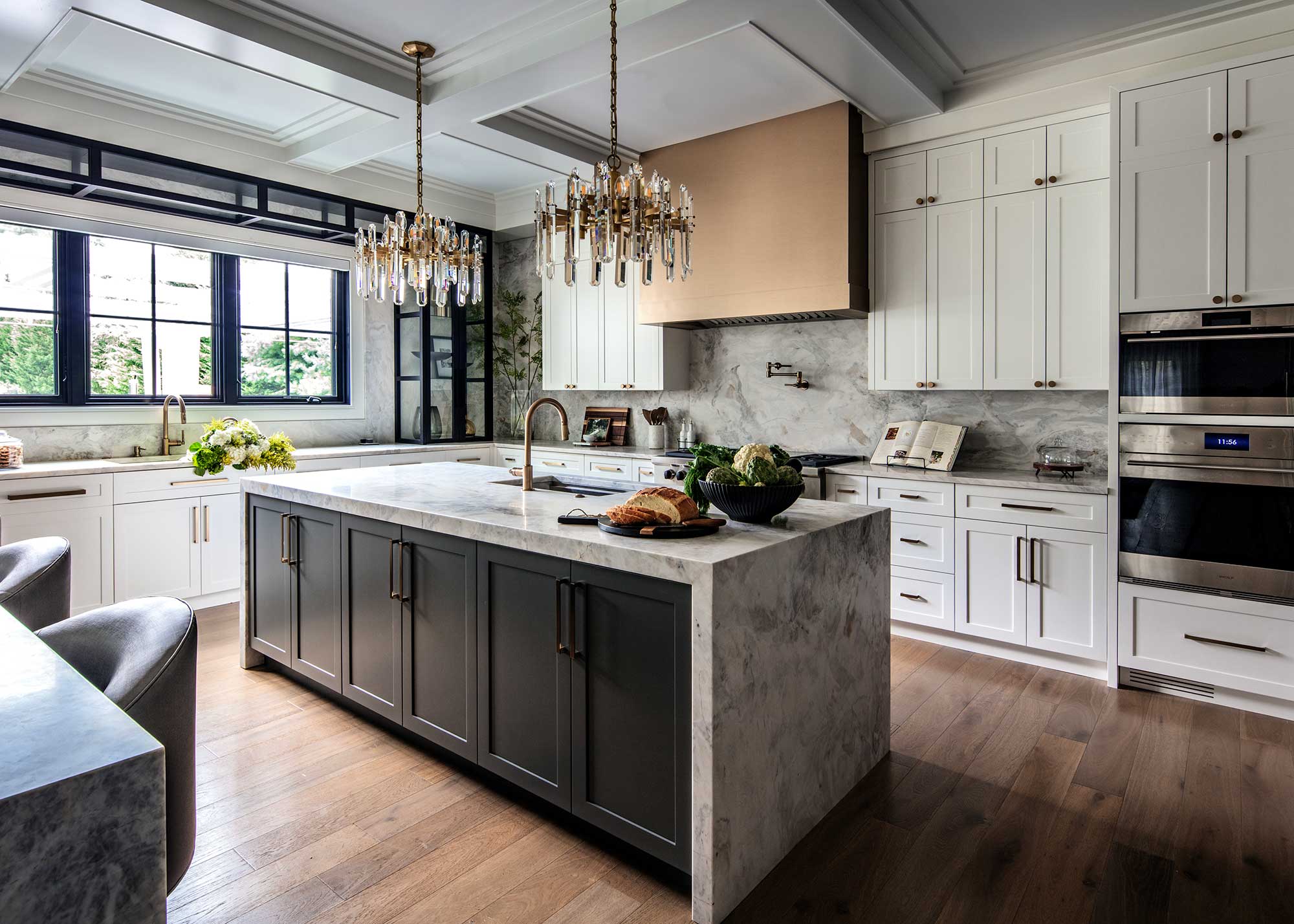
Certain kitchen countertop ideas will always be more expensive than others, although for many, this is one element of the kitchen really worth spending on.
"When it comes to investing, if you are purchasing a bespoke high-end kitchen, then you really don’t want to cut corners with your worktops as it will detract from the expensive cabinetry," points out Richard Davonport, managing director at Davonport. "Instead, look at them as the icing on the cake and an important factor that shouldn’t be overlooked.”
Right at the top of the price scale lies marble (one of the hottest kitchen trends right now), although even within this category, prices will vary.
"For a luxurious, one-of-a-kind work surface, there’s no bigger statement than marble," picks up Mike Whitfield, luxury interiors expert at LUSSO. "Marble has been associated with luxury for thousands of years, and still retains the same allure. It’s also an incredibly durable material that will stand the test of time, both in terms of looks and longevity.
“The price of marble can vary depending on the type of marble you choose, with Carrara and Arabescatto marble carrying lower price points compared to rarer options like Panda marble," continues Mike. "Whatever type you use, marble is a natural stone and so will have completely unique patterning and veining that will make your kitchen one of a kind."
"Natural stones like marble and quartzite remain some of the most luxurious (and costly) options, not just because of their beauty, but due to extraction, transport, and the skilled fabrication required," further adds Antonio Bambino. "Expect to pay £700–£1,200 per m² for premium stone, especially with book-matching, leathered finishes, or thicker profiles."
"With marbles, the general rule of thumb is that the deeper and more dramatic the veining, the higher the cost will be," adds Ash McCullough, lead designer at Blakes London.
Are There any Lower Cost Alternatives to Marble Countertops?
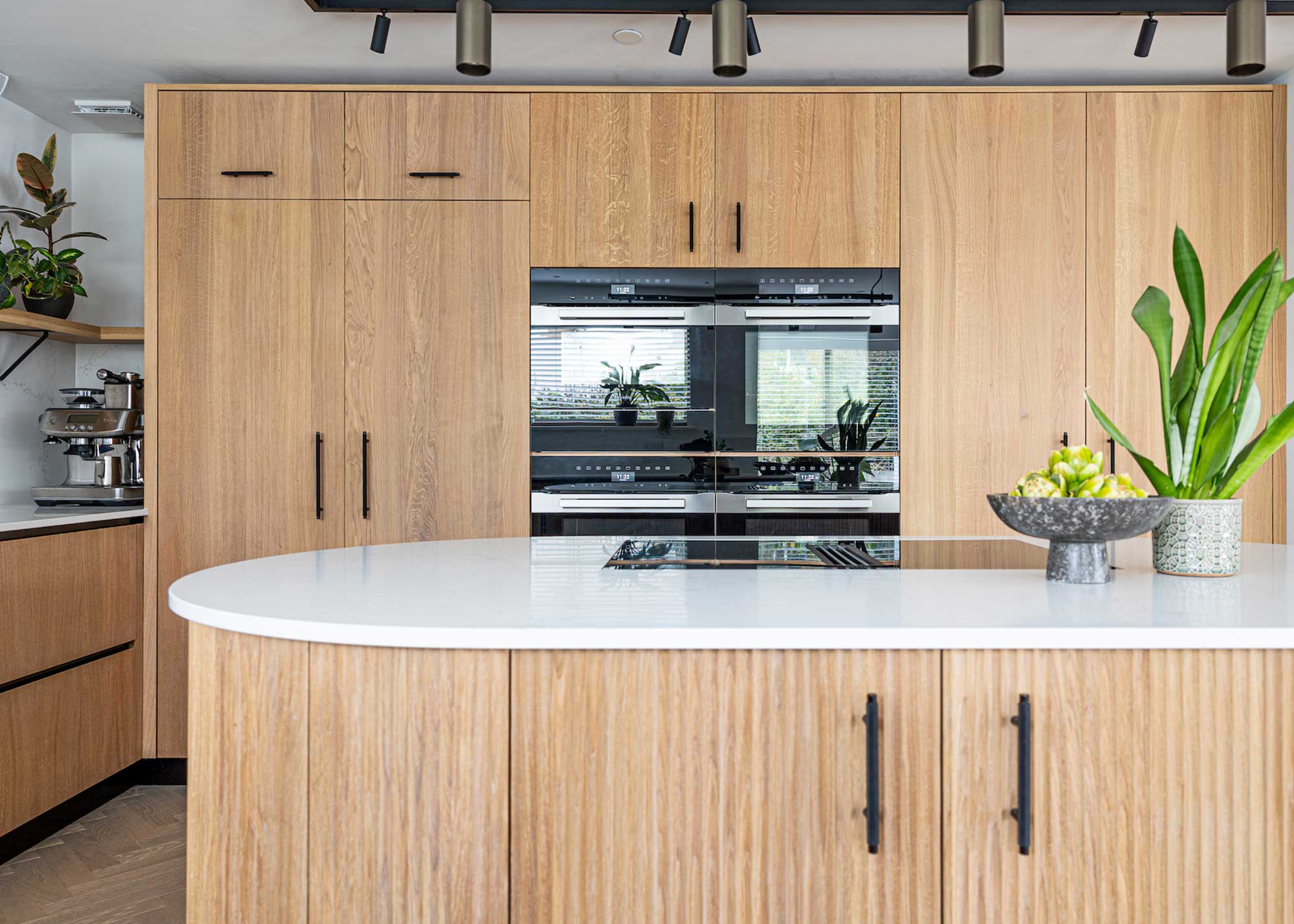
If you love the look of marble, but are not so enamoured with its price tag, what are your options for keeping kitchen costs down?
"Marble is beautiful but not always practical or affordable," explains interior designer Elizabeth Ego, the visionary behind Agape Design Group. "For a more budget-friendly option, consider quartz or porcelain slabs with a soft, natural veining pattern. Many manufacturers now offer incredibly realistic marble-look surfaces that mimic the depth and movement of real stone, without the maintenance or cost."
"Engineered quartz offers a more cost-effective alternative while still delivering a high-end look, averaging £350–£600 per m² depending on the brand and colour," explains Antonio Bambino. "It’s durable, consistent and easier to maintain than natural stone — making it a popular mid-range choice.
"We would suggest you chose a low silica quartz," picks up William Durrant. "There are cheaper quartz products but generally these will be higher in silica and more dangerous for the stonemasons."
How Much Do Porcelain Countertops Cost?
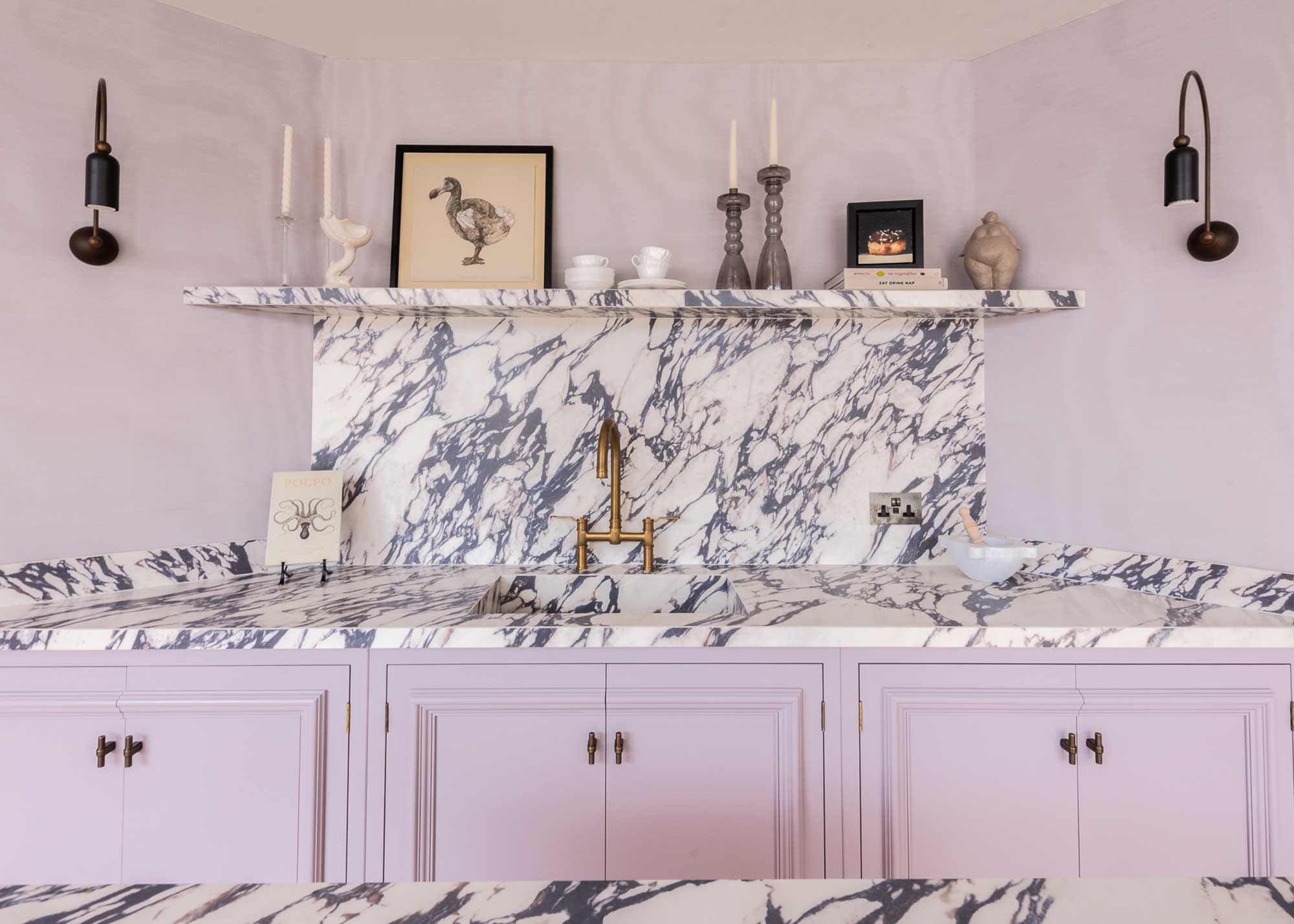
As one of the best countertops for cooking, porcelain is a great option and you can expect to pay between £250-£450 per m².
"Then you have porcelain, which we are big fans of," says William Durrant. "This is low in silica, meaning you won’t risk hurting anyone in the supply chain for you pretty worktops.
"Most of our studio is with porcelain and the product has really come along in the last couple years," continues William. "Generally, they are 12mm and we build this up to make them look thicker. The extra costs in porcelain are generally in stonemason fabrication."
How Much Do Wood Countertops Cost?
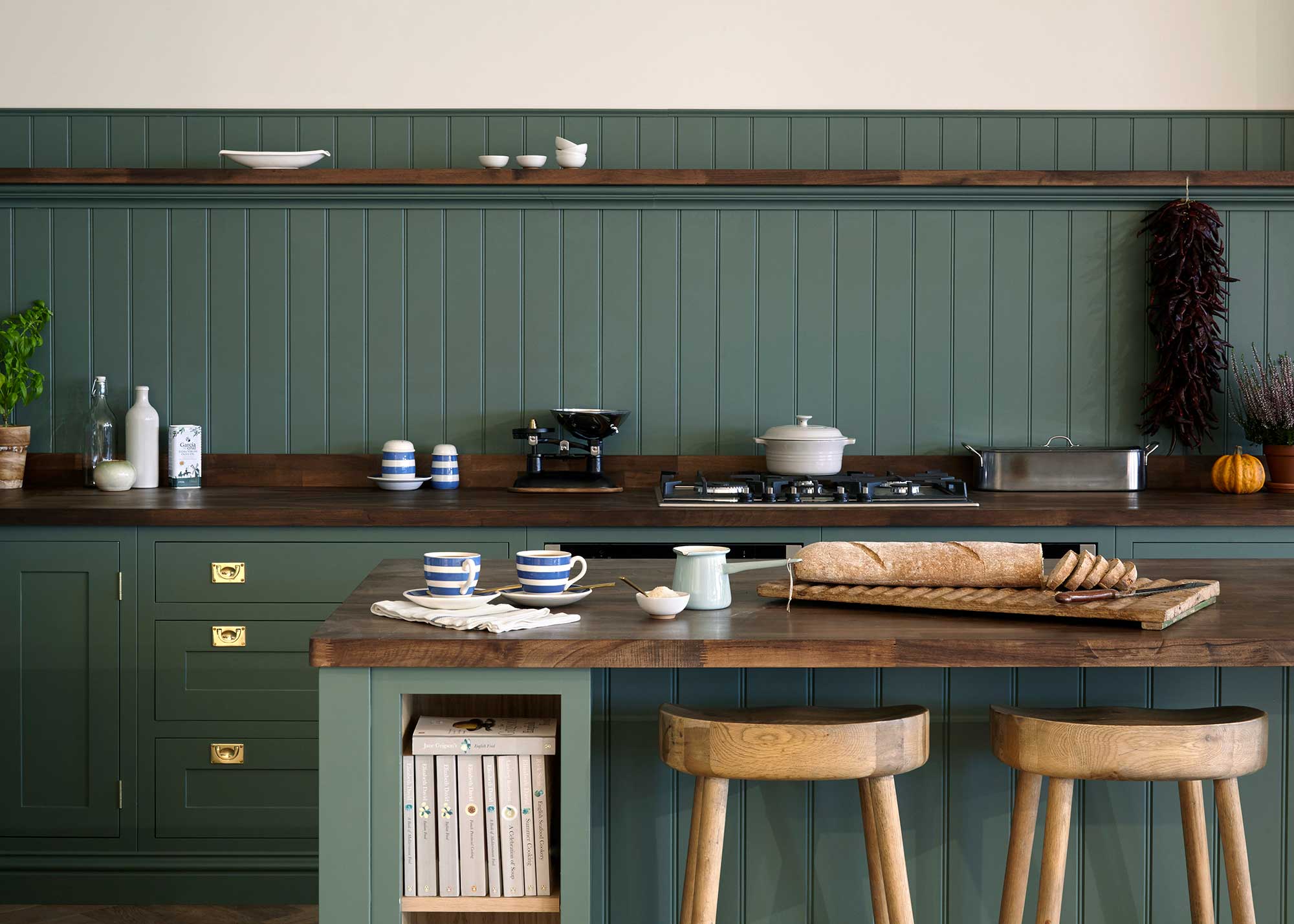
Despite being higher maintenance than some other countertop materials, wood remains a popular option, due to its relatively low cost (around £100-£120 per m²) and ability to add warmth and character to a space.
"Wood is a cost effective option, but with a somewhat more desirable and timeless look than manmade alternatives such as laminate, especially in a rustic style kitchen," explains Mike Whitfield. "Wood does, however, require more frequent maintenance to prevent damage."
"Timber worktops are a cost-effective option, particularly in the short term, for your kitchen," agrees Ash McCullough. "However, they do require significant maintenance to keep them looking good and hygienic, especially in areas that are exposed to moisture."
Bear in mind, one of the biggest kitchen countertop mistakes, is to choose a material that requires a great deal of maintenance if you want a more hands-off option.
Which Factors Increase the Cost of Countertops?
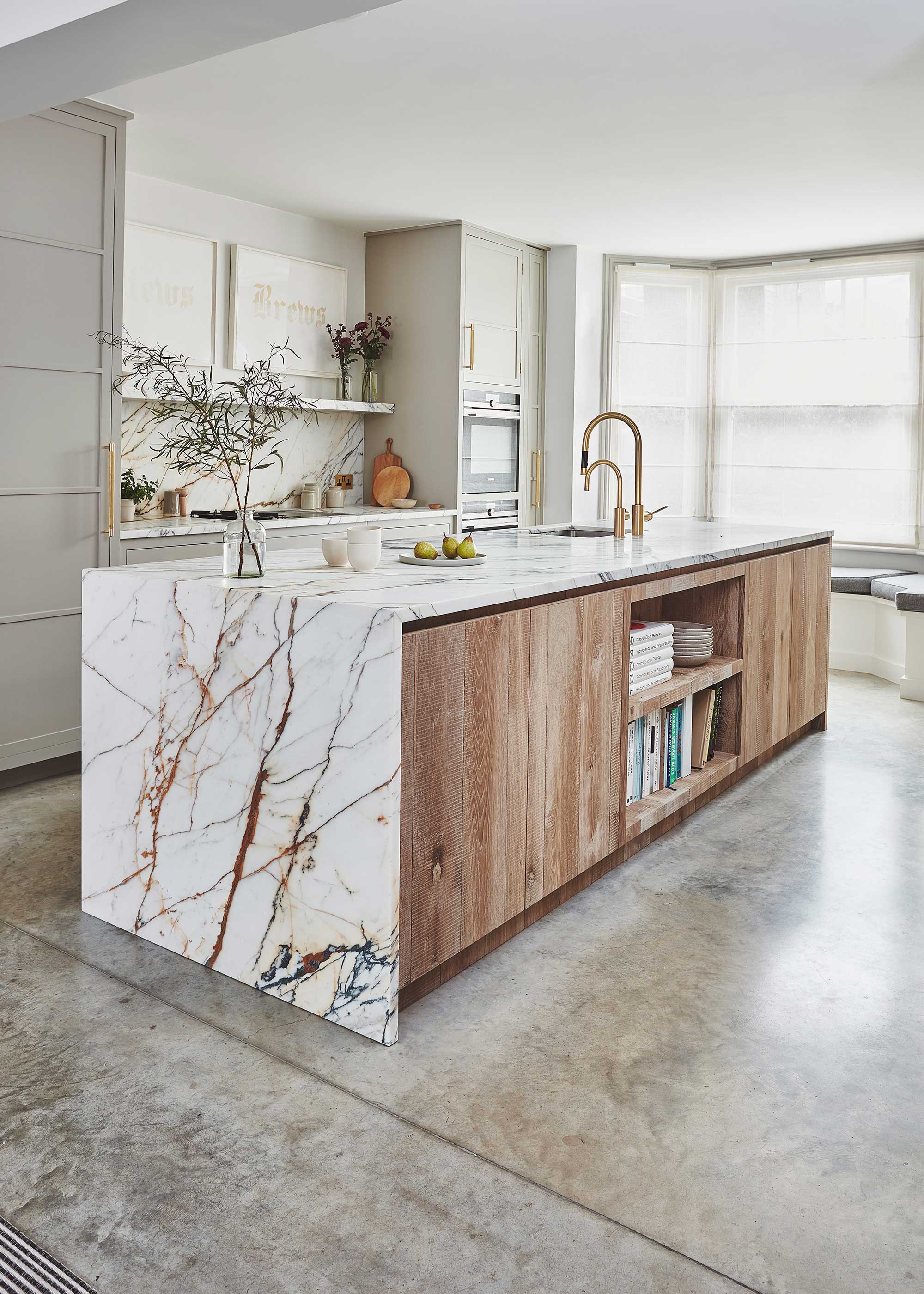
Material choices aside, there are other factor that affect how much your countertops will cost you, such as choosing waterfall countertops.
"The way you choose to detail your worktop will have a considerable impact on the final cost," explains Ash McCullough. "Edge details are a key area of expense. For example, a bullnose edge must be hand-sanded to create the soft curves, and built-up or triple-stacked edges are visually striking but can significantly increase the final cost.
"Other factors to consider include the number of cut-outs you need or whether you plan to integrate your sink into the worktop," continues Ash. "A sink made from the same material as the worktop looks stunning but comes at a premium. Similarly, having your worktop flow seamlessly into the backsplash and extend into a shelf detail is a popular design feature, though it will also affect the overall cost."
FAQs
What Is the Cheapest Kitchen Countertop?
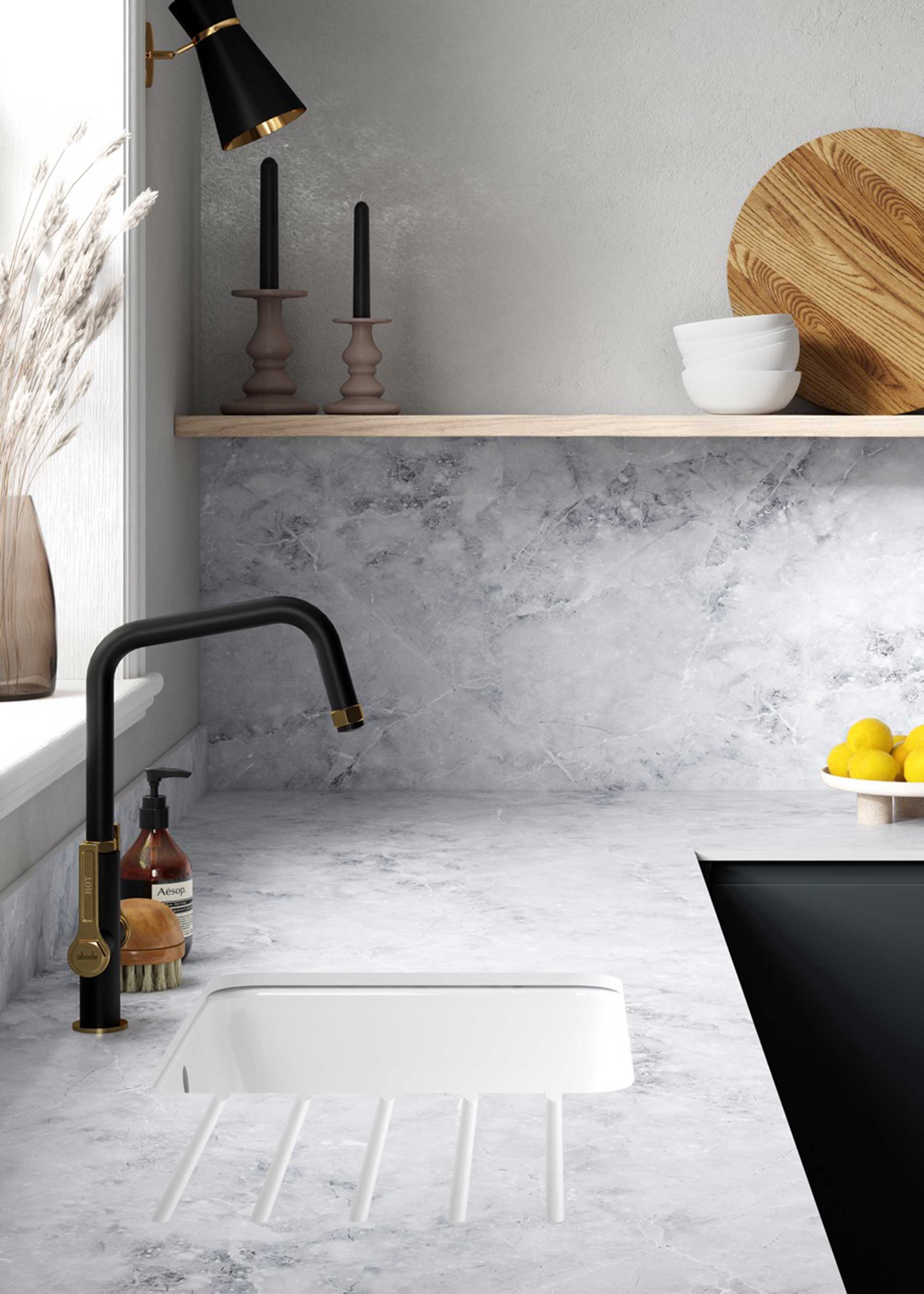
If keeping a lid on costs is a priority for you, there are plenty of other alternative countertops at the opposite end of the price scale to marble, all of which are well worth considering.
"At the more affordable end of things, laminate and solid surface materials (like Corian) start around £150–£300 per m², but won’t offer the same long-term durability or aesthetic depth," says Antonio Bambino. "They’re ideal for budget-conscious projects or temporary solutions."
Mike Whitfield agrees. "Manmade alternatives like laminate and Corian are cheaper options for a kitchen surface, but can sometimes undermine a desired luxurious aesthetic," he says. "They can also chip, dent, and burn over time, and are less resistant than well-maintained natural stone options."
"Ultimately, the most cost-effective solution is one that balances aesthetics with practicality and longevity," adds Antonio Bambino. "Investing in quality materials for high-use surfaces like kitchen countertops tends to pay off in both performance and long-term value."
"If you are looking to try and reduce costs, consider mixing and matching materials such as a mixture of quartz for key prep areas and wood for less-used zones," picks up Richard Davonport. "Worktops also come in different thicknesses, so by reducing it from say 30mm to 20mm, this will also make it cheaper."
Bear in mind that, when choosing kitchen countertops, you don't have to opt for the same material throughout. Sometimes, selecting something really eye-catching for your kitchen island ideas, and sticking to a more affordable, subtle option elsewhere is the best course of action.







